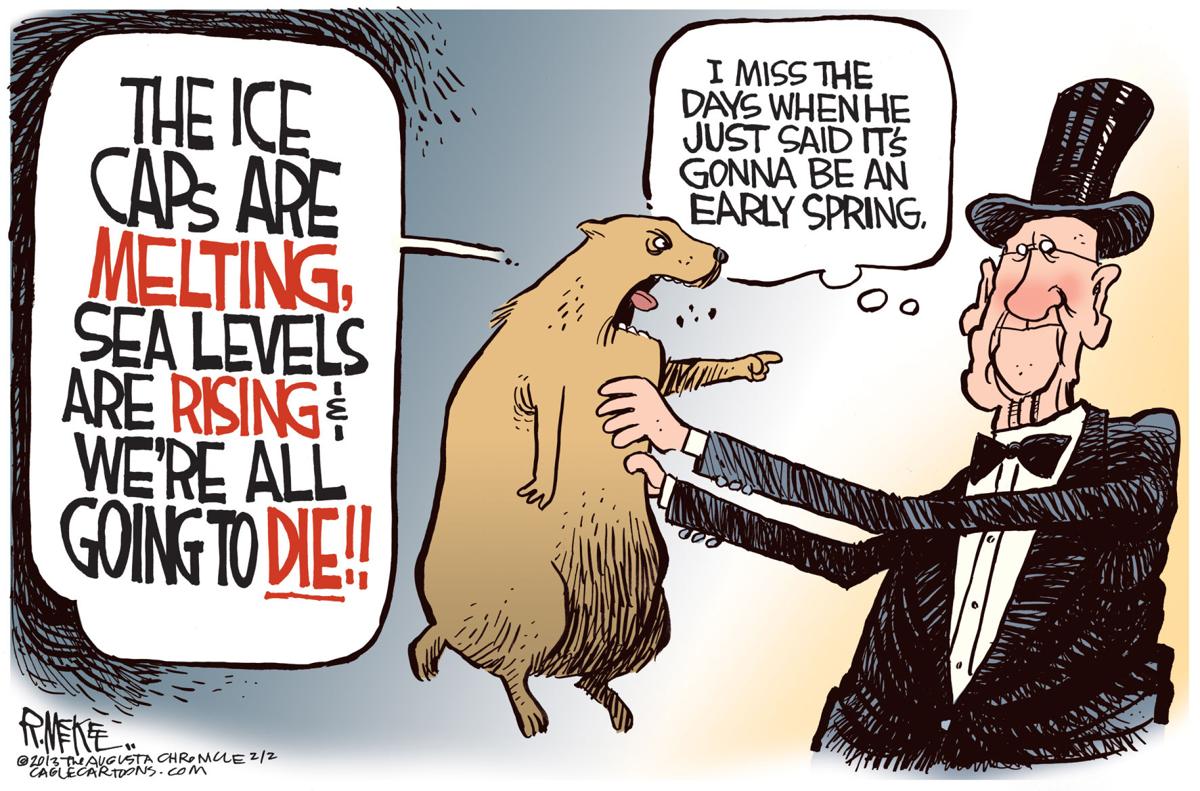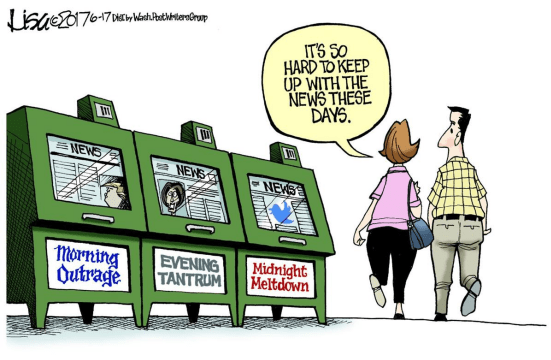At MondayNote, Frederic Filloux writes The Hazards of Covering Climate Change. Without taking sides he describes why media coverage of global warming/climate change is so incompetent. Excerpts in italics with my bolds.
Zeal, political agendas, all kinds of excesses, but above all the intrinsic complexity of the issue, make the climate crisis extremely challenging to cover. Newsrooms should tackle the problem decisively.

Spending a few weeks in California this summer, I talked to many fellow journalists about the issue of covering the climate crisis. What I found is a yawning gap in the way it is approached.
In broad strokes, the coverage of climate change in Europe — especially in France — is loaded with negativism and finger-pointing while the US conversation seems more focused on finding broad, tech-driven, solutions. Neither is exempt from caricatures.
European ecology yields a political agenda which questions the relevance of the free market economy in a way that reminds of the Marxism activism in the ’70s. To many eco-activists, responding to the climate crisis requires a Malthusian approach, with all sorts of constraints on the way we travel, commute, eat, and consume that will involve some curtailing of individual liberties (as a French socialist leader put it a few weeks ago).
The buzzword is now “degrowth”. Economic contraction is the only way, never mind the collateral damages. Europe has its icons like Greta Thunberg, the young Swedish activist who preaches her doomsday prophecy with more whimsy than facts or knowledge.
The current ideological hodgepodge does not foster nuances: you are either with or against. For instance, questioning the media circus around the Swedish girl, and denouncing the cynicism of her handlers who uses her autism as a marketing tool, even if you agree with her on the fundamentals, will leave you categorized as part of the white, privileged, sexist dominant caste climate deniers.
Suggesting that French president Macron’s move to give up research on fourth-generation nuclear energy is a terrible decision (The French nuclear program allows France to emit only one-tenth of Germany’s CO2 per kWh of electricity), will also put you in the “climate-negationists” league, an elegant term alluding to Holocaust deniers.
On the matter of nuclear energy, the French press is doing such a terrible job that 86 percent of the 18–24 years old believe that the cooling towers of a nuclear plant spit out CO2 (it’s vapor).
As an American fellow journalist told me last week, “Europe succumbs to a kind of withdrawal while the United States is looking for tech solutions”. The fact is, by and large, the coverage of the climate crisis in the American media, is more proactive and less whining than the one in Europe, despite Donald Trump’s compulsive anti-environment stance. The tech and business press always seem eager to report on breakthroughs that could contain the crisis. As I observed in Silicon Valley last month, an unprecedented number of startups are working in the field. They range from optimizing the global food supply-chain to developing ways to save water (while just 130 miles south of San Francisco farmers continue to irrigate in the worse possible way) to make buildings greener. Venture capital investors are injecting billions of dollars in Greentech. While many European ecologists blame capitalism for the degradation of the planet (ignoring that the worse polluters are still in the former USSR and in China), entrepreneurship is in full swing in the United States, even if it sometimes comes with a dose of naïveté and unrealistic expectations.

Let’s get back to journalism.
By and large, newsrooms are not currently up to the task. Despite highly publicized initiatives taken by large publishers and noteworthy initiatives such as the #CoveringClimateNow partnership, the bulk of the coverage is terrible.
For the most part, it oscillates between an ideological stance and an irrational exuberance for technological promises. Approximation and caricature are rampant. Periodically, haste leads to false information that is quickly exploited by true climate deniers.
When covering the climate crisis, mistakes carry way more consequences than for any other beat.
The complexity of the subject makes it incompatible with the brevity of social media. Elizabeth Kolbert’s seminal piece in the New Yorker, The Sixth Extinction, published in 2009, could not have been chopped down into a tweetstorm. Reporters should be encouraged to embrace complexity. Unfortunately, they don’t have the time nor the training. That is also the consequences of newsrooms trends that often considered science journalism as a genre mineur
It is time for decisive actions. Given what’s at stake, J-schools must create specific curriculum aimed at feeding much-needed news desks that are currently non-existent in most newsrooms. Addressing the issue requires a multidisciplinary approach: rethinking the relation to cities, transportation, public policies, macro-economy, and innovation. If specific expertise is needed in newsrooms, it is definitely to cover this beat (plus, it can be a highly beneficial sector: the first outlet to become a reference in the field will reap substantial profits).


Reblogged this on Climate- Science.press.
LikeLike
The center of US environmental “journalism” command and control: https://www.sej.org/
LikeLike
Reblogged this on Climate Collections.
LikeLike
A major issue is most journalists are simply innumerate. As soon as numbers go above a few hundred, they are all the same. Thus they frequently do things like make a huge fuss over 200 or so puffins being killed in storms and washing up on the shore as something catastrophic even though the total number of puffins runs in the millions. They also have no training in statistics so they are filled by preposterous extrapolations no reputable scientist would ever dare undertake. Innumeracy makes journalists vulnerable to manipulation by those using climate change to push agendas.
LikeLike
Thanks for commenting TWS. True they are numerically challenged, but worse IMO is that their perspective on the facts or data is both myopic and lopsided. With such impaired vision, they can not process either numbers or statements.
See https://rclutz.wordpress.com/2017/08/21/impaired-climate-vision/
LikeLiked by 1 person
“Climate change” has brought out the worst, or at the least damaged, every area of thought, communication, or scholar’s it touches
LikeLike
I hadn’t realized that Greta had been tagged with the now-fashionable diagnosis of autism. (Obviously, she’s a normal, albeit deluded, individual.)
LikeLike
rw, her mental issues should be beside the point. She makes speeches without any basis in scientific knowledge. All she has is a certitude based not on her own study and analysis of the facts, but upon her childish faith in what some adults have told her. With such a narrow exposure and the limited capacity at her stage of life, it is crazy to defer to her words as though she were the adult in the room. She is a foil for activists, not Joan of Arc. She is also an example of a disturbing modern trend: ignorant celebrities who attract followers by being absolutely convinced of something, since they don’t know all that they don’t know.
LikeLike